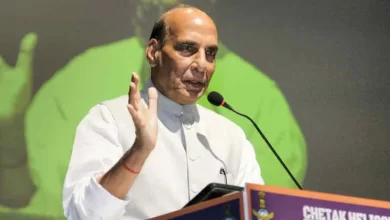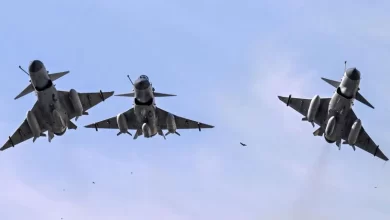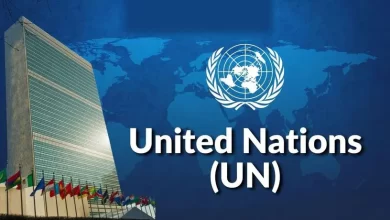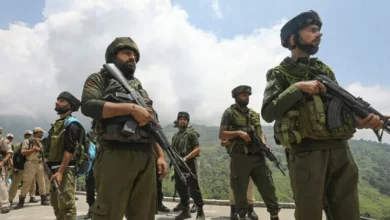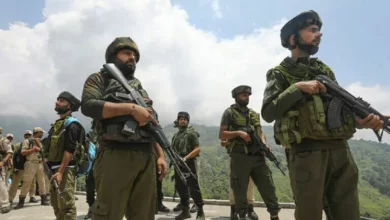‘Social media turning into toolkit for terror’

India on Saturday highlighted the potential for misuse of transformative technologies such as encrypted messaging and virtual currencies by non-state actors, with external affairs minister S Jaishankar calling for stronger global efforts to combat their use by terrorists.
Internet and social media have turned into “potent instruments in the toolkit of terrorist and militant groups” for spreading radicalisation and conspiracy theories, he said.
Jaishankar made the pitch in his keynote address at a special meeting of the UN Security Council’s Counter-Terrorism Committee (CTC) hosted by India. The meet focused on countering terrorist exploitation of ICT, internet and social media, threats related to new payment technologies and use of unmanned aerial systems (UASs) by terrorists.
Jaishankar said terrorist groups, their “ideological fellow-travellers” and “lone wolf” attackers have enhanced their capabilities by gaining access to new and emerging technologies.
In an apparent reference to Pakistan, he added the UN’s terrorist sanctions regimes have helped put countries on notice for turning terrorism into a “state-funded enterprise”.
The transformative technological innovations and breakthroughs of the past two decades, including virtual private networks, encrypted messaging services, blockchain and virtual currencies, have an array of economic and social benefits but the “flip side” is their misuse by terrorists, Jaishankar said.
“These very technologies have also thrown up new challenges for the governments and regulatory bodies due to their potential vulnerability for misuse by non-state actors, given the very nature of some of these technologies and the nascent regulatory environment,” he said.
“In recent years, terrorist groups, their ideological fellow-travelers, particularly in open and liberal societies and ‘lone wolf’ attackers have significantly enhanced their capabilities by gaining access to these technologies,” Jaishankar said, adding terrorists use technology and the “ethos of open societies” to attack freedom, tolerance and progress.
Another concern for countries is the misuse of UASs by terrorist groups and organised criminal networks. “Being a relatively low-cost option and with an increasing ease of accessibility, misuse of these unmanned aerial platforms for nefarious purposes by terrorist groups such as weapons and explosives delivery and targeted attacks have become an imminent danger,” Jaishankar said.
“The possibilities of using weaponised drones for terrorist purposes against strategic, infrastructure and commercial assets call for serious attention by the member states,” he added.
Jaishankar noted that terrorists had launched cross-border drone attacks on the UAE and Saudi Arabia, targeting civilian infrastructure, which led to loss of lives and injuries, including to Indian nationals.
He also cited specific instances of terrorists using technology to target India and other countries.
“Our experience showed us how a benign technology of Voice over Internet Protocol (VoIP) could be used for organising and directing such a barbaric terrorist attack from beyond our borders,” he said, referring to the 2008 Mumbai attacks.
More recently, terror groups have used drones and quadcopters for cross-border trafficking of drugs and arms, and for carrying out attacks in the country. Such risks are not limited to India, he pointed out. Drones were used by terror groups to monitor the movement of security forces and UN peacekeepers in Africa.
Reaffirming India’s commitment to combat terrorism, Jaishankar announced a voluntary contribution of $500,000 by India to the UN Trust Fund for Counter-Terrorism to augment the UNOCT’s efforts to build the capacity of member states to counter terrorism.
This is the first time that the UN Security Council is holding a meeting, in any format, in India. It is only the eighth time that the CTC has held a meeting outside the UN headquarters in New York.
Describing terrorism as “one of the gravest threats” to humanity, Jaishankar said the UN Security Council has evolved an important architecture to combat the menace that is built around the counter-terrorism sanctions regime.
“This has been very effective in putting those countries on notice that had turned terrorism into a state-funded enterprise,” he said.
“Despite this, the threat of terrorism is only growing and expanding, particularly in Asia and Africa, as successive reports of the 1267 Sanctions Committee Monitoring Reports have highlighted,” he said.
He added the special meeting of the CTC is being held in India because counter-terrorism is one of the top priorities for the country’s two-year stint in the UN Security Council.
In a message, UN Secretary-General Antonio Guterres said new and emerging technologies have been misused by many, including malicious actors.
“Terrorists…are abusing new and emerging technologies to spread disinformation, foment discord, recruit and radicalise, mobilise resources and execute attacks,” Guterres said. The world community must adopt concrete measures to reduce vulnerabilities while protecting human rights in the digital sphere through effective multilateralism and international cooperation, he added.
UK foreign secretary James Cleverly, while addressing the meeting, called for like-minded partners to come together to cut terrorist resources and prevent future attacks like the 2008 Mumbai attacks.
“Within the space of two decades, terrorists have gone from circulating crackly voice recordings from the depths of Tora Bora [in Afghanistan] to global online recruitment and incitement campaigns, to live-streaming attacks,” he said.
“The threat from terrorism hasn’t gone away…we must continue to work together, and with industry and with all parts of our communities to discredit the narratives of hate, to counter radicalisation, to infiltrate networks, to foil plots and to starve terrorists of the finances and the emerging technologies that they would use to do us harm,” Cleverly added.
The meeting was also addressed by foreign minister Michael Adamo of Gabon, the current president of the UN Security Council, Ghana foreign minister Shirley Botchwey, UAE minister of state Reem Ebrahim Al Hashimy, and Albania deputy foreign minister Megi Fino.

